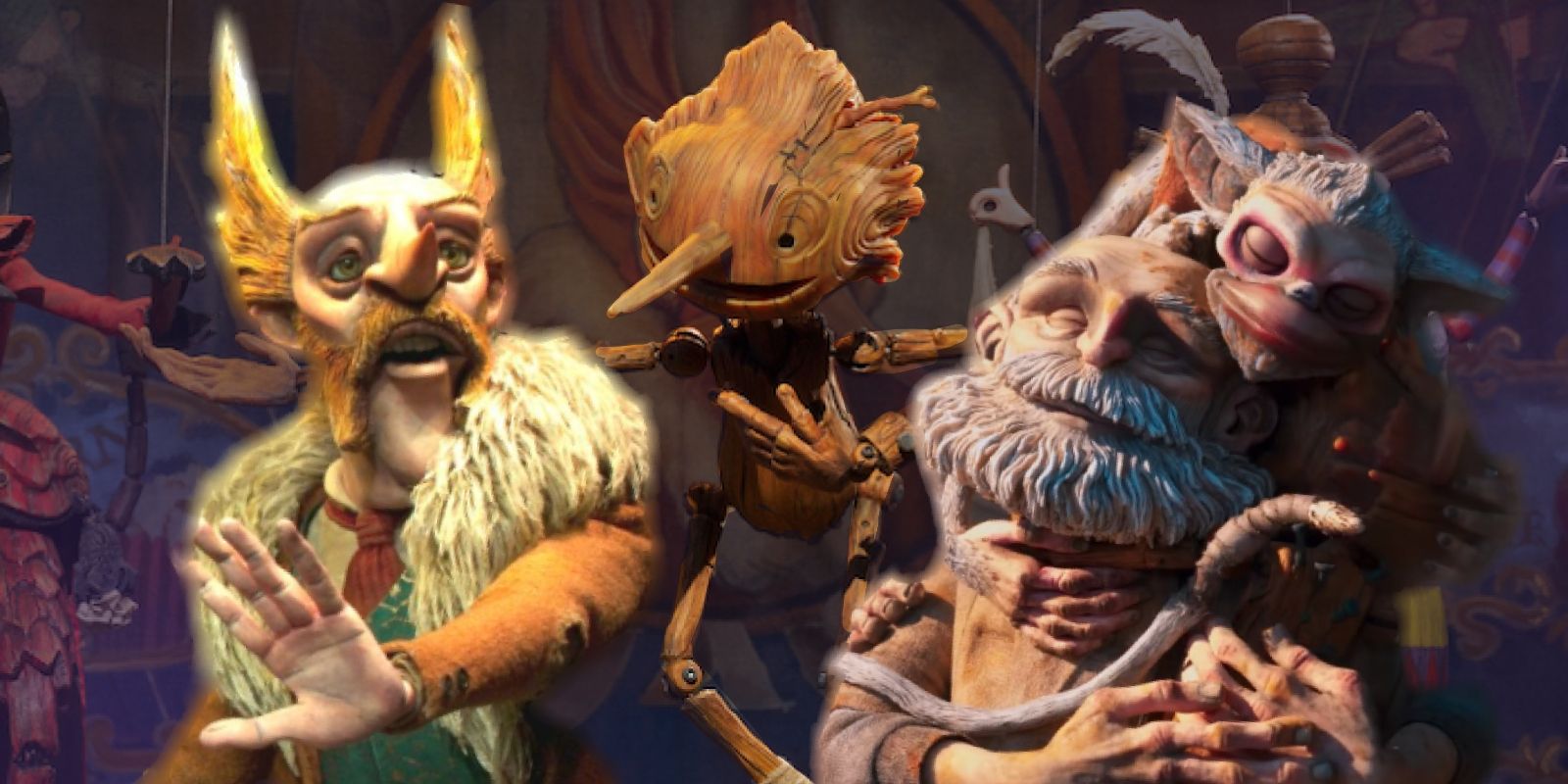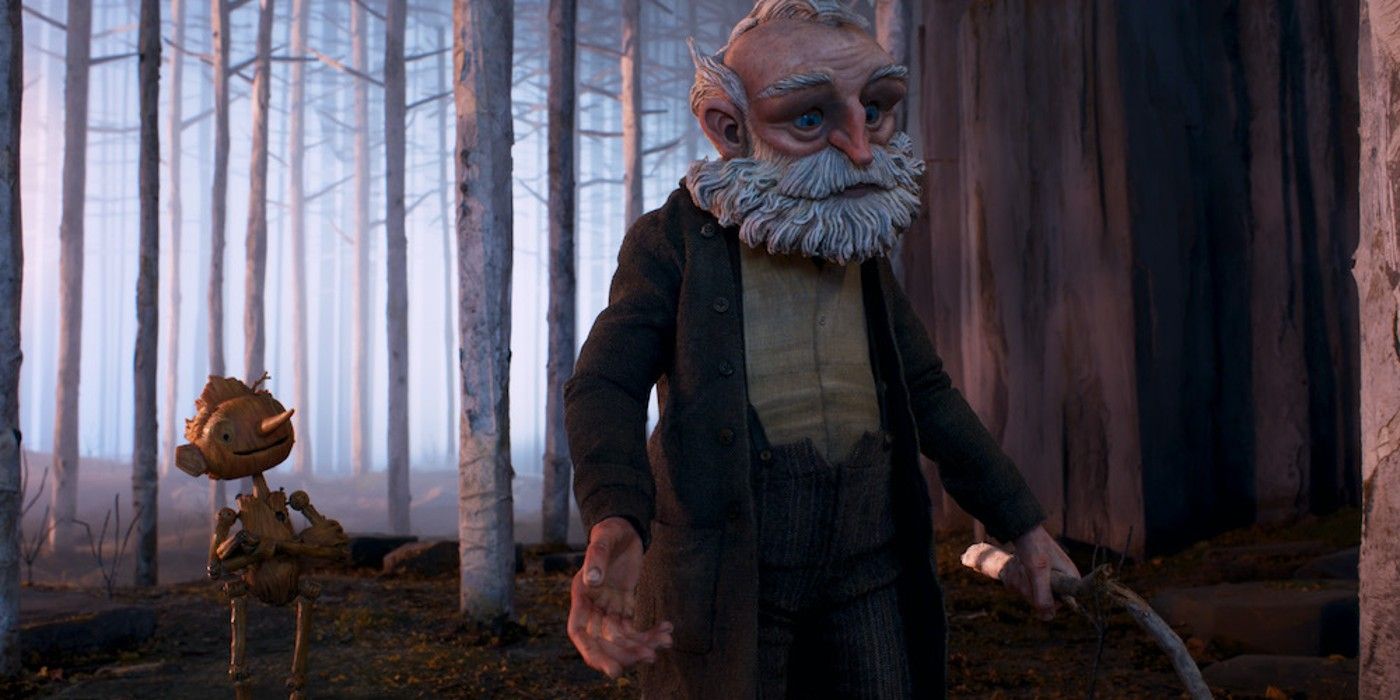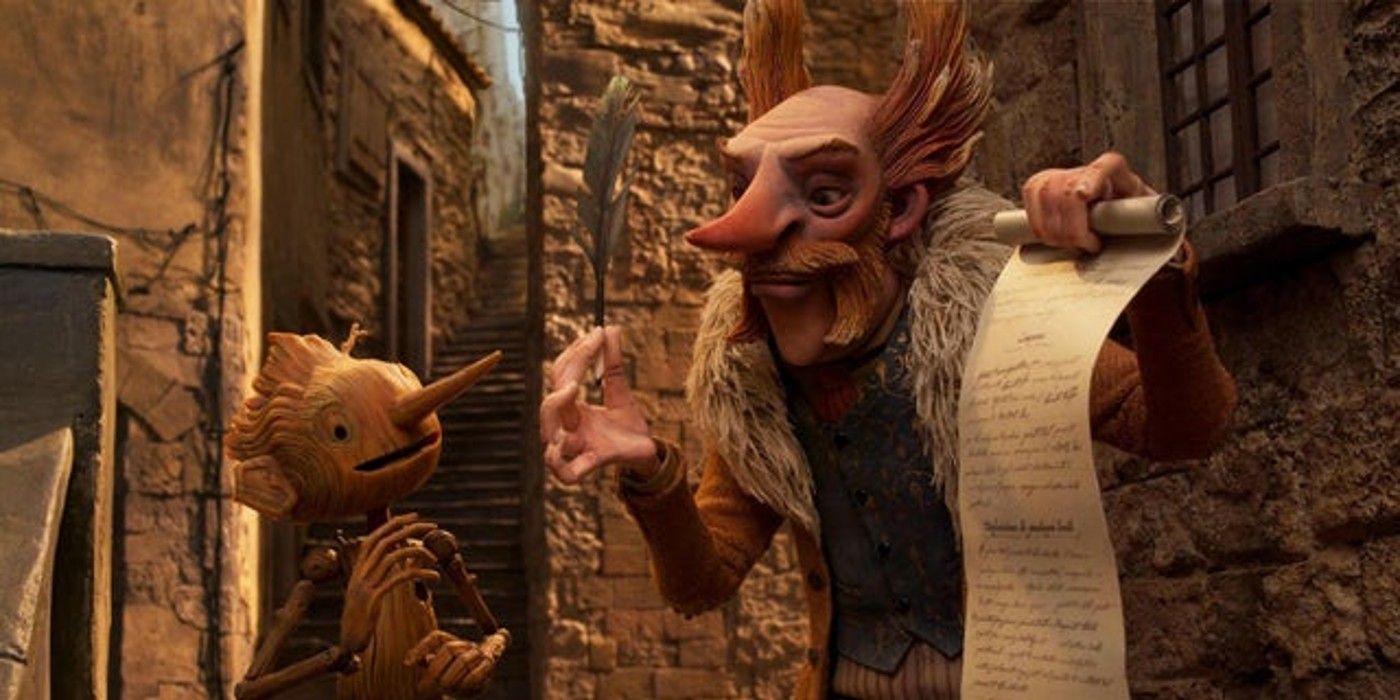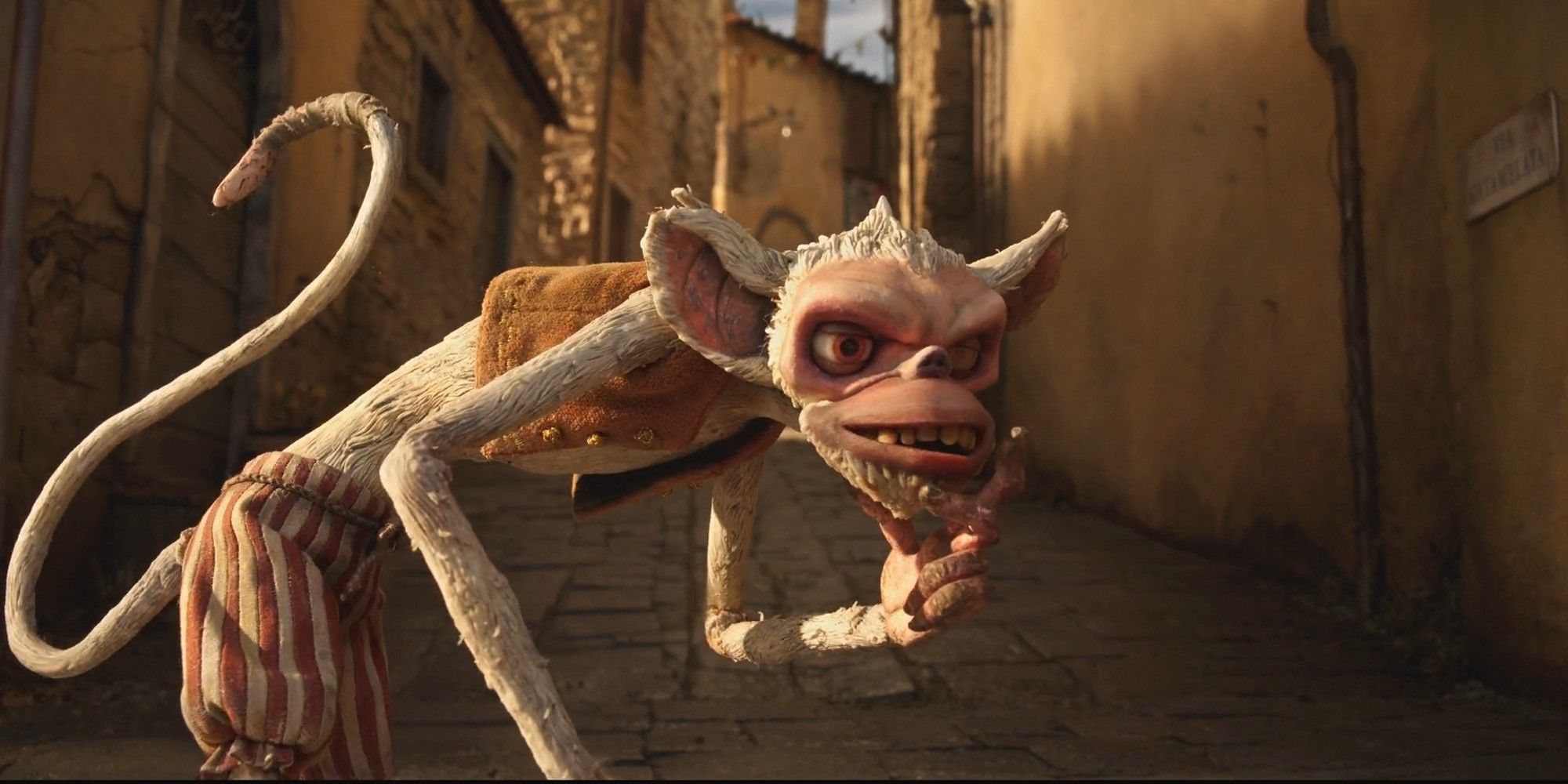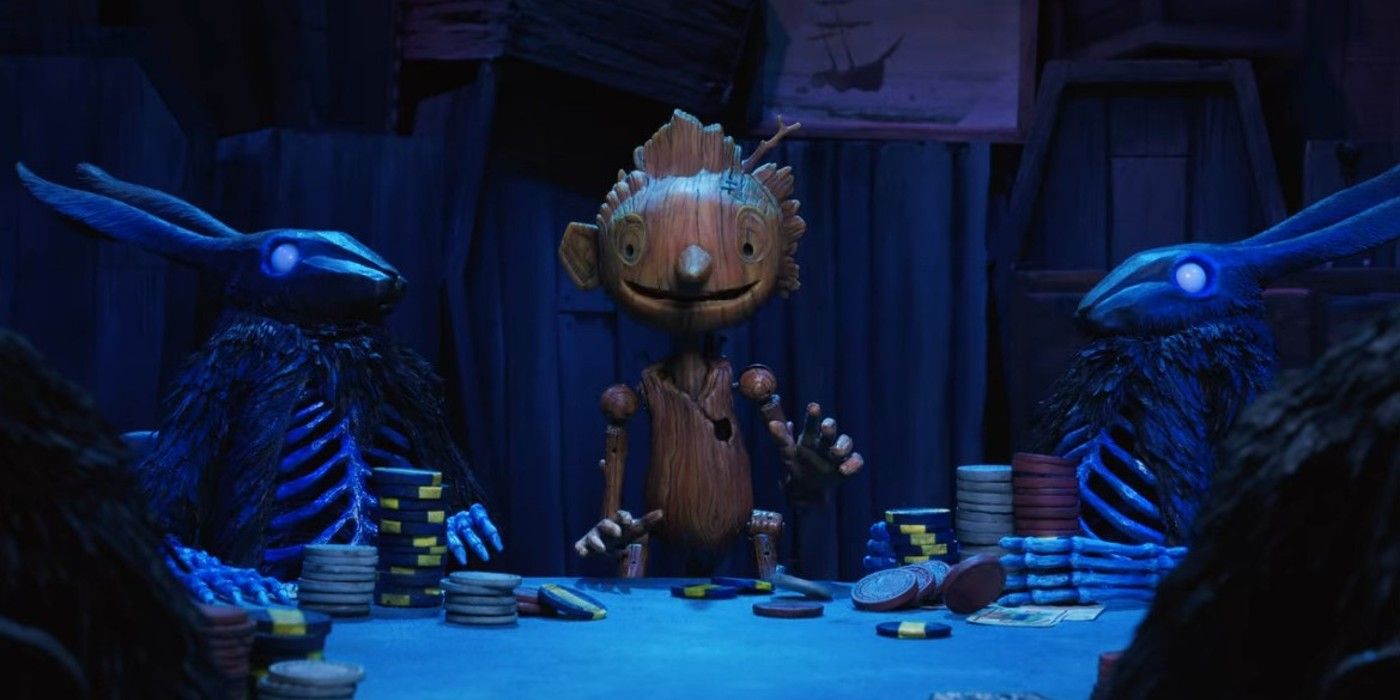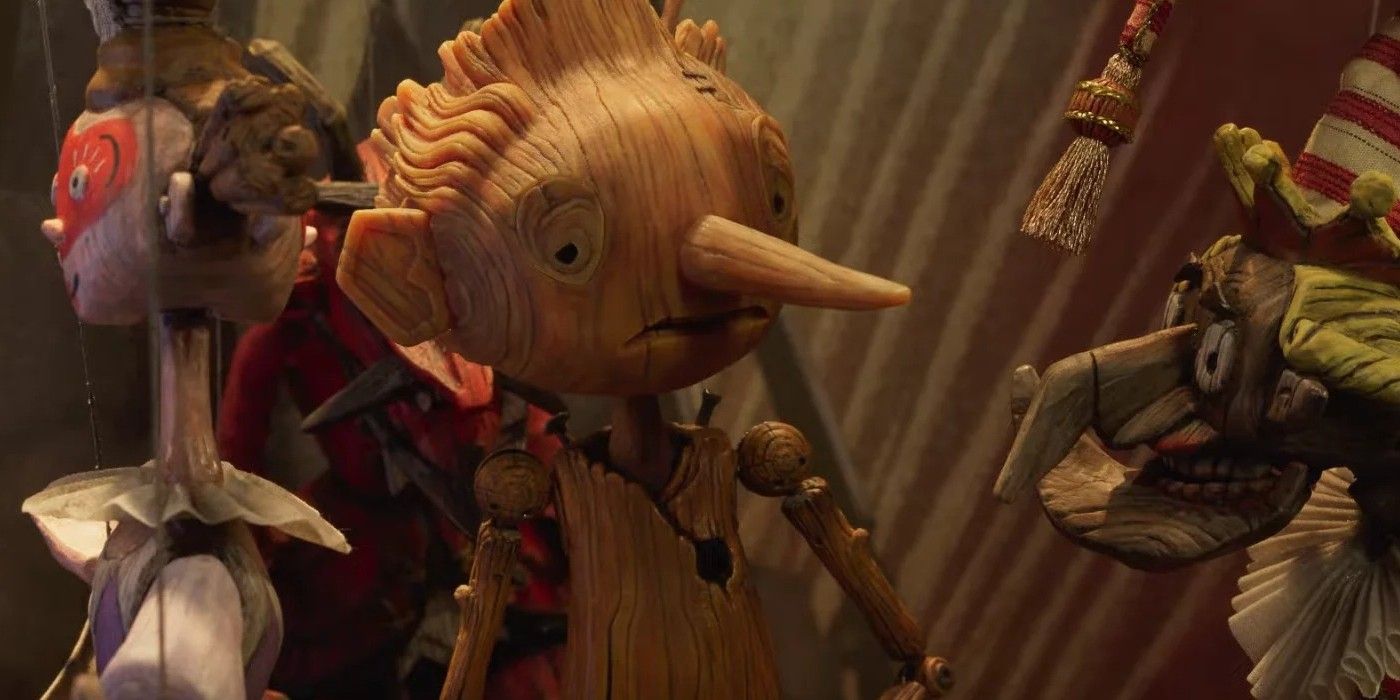Throughout all forms of written art, there tends to be some symbolic meaning behind certain words, figures, or names. The beloved childhood favorite Pinocchio is no different. The book was originally written in Italian by an Italian author and takes place in the European country. So, most of the names within the story have interesting Italian origins.
The story of Pinocchio has had plenty of adaptations over the years. From the original book called The Adventures of Pinocchio and the famous 1940s film by Disney to more recent movies, the story is the same at the most basic levels. Guillermo del Toro's not-so-family-friendly version of Pinocchio still follows the story of a grieving woodcarver that longs for a child. He lovingly carves a puppet out of wood in the likeness of a young boy and hopes that he can somehow father the toy. His wish is granted when the wooden figure comes to life. While most versions follow the boy as he learns about the importance of honesty and character, del Toro's version has the father and son struggling to survive in fascist Italy. Regardless, the characters are primarily the same, and their names share the same meanings.
Geppetto Has Biblical Symbolism
The name Geppetto is a regional variant of another Italian name, Giuseppe. Geppetto has origins in Tuscany, Italy, but they can share the same meanings. Giuseppe is an Italian version of the name Joseph, which is a figure in Christian mythos. Joseph was the father figure of Jesus and raised him as if he was his biological child. Joseph was also a carpenter. So, there are plenty of parallels between his character and Pinocchio's Geppetto.
Throughout most versions of the story of Pinocchio -- including Guillermo del Toro's version -- Geppetto is a woodcarver. This means he's kind of like a carpenter. He's also the creator of the beloved puppet Pinocchio. When the toy becomes sentient, Geppetto becomes his dad. His name and character are incredibly similar to the biblical origins.
Count Volpe References the Original Book
Volpe in Italian means fox, which, when used in the context of Pinocchio, references Carlo Collodi's original book about the same talking puppet. In the book -- and the subsequent Disney version of Pinocchio -- there's a character called John the Fox. So, of course, the name Count Volpe in Guillermo del Toro's Pinocchio just references the fox in the source material.
There's plenty of symbolism with foxes, and unsurprisingly, there's a connection between the origins and the character. Despite Count Volpe being a combination of two classic Pinocchio villains, the name Volpe focuses on the original fox image. Foxes are commonly associated with cleverness, independence, and mischievousness. Oftentimes, characters that are foxes are shady. So, Count Volpe being a swindler and overall suspicious character makes the connections perfect.
Spazzatura Is a Tragic Example of Degradation
Nightmare Alley's Cate Blanchett is credited in Guillermo del Toro's Pinocchio as the character Spazzatura. In Italy, spazzatura means rubbish, garbage, or other dirty synonyms of these words. Such a name is obviously embarrassing for any character to be called. But that's kind of the point.
Spazzatura, the beloved monkey, is essentially Count Volpe's minion. Volpe isn't the best example of a master for the poor creature. He's rude at best and abusive at worst. So, it's no surprise that Volpe is responsible for Spazzatura's name. That's what the monkey is called as a form of degradation and oppression. Sadly, it's fitting that his name means garbage because, in the eyes of most of the other iconic Pinocchio characters, he is trash. He's definitely treated as such by his peers and superiors.
Podestà Has Political Ties
The word podestà in Italy has powerful origins. This is primarily because the word means power or authority. It's also the title of a high-ranking government official. The name's definition and Italian origins are almost perfectly reflected in the story of Pinocchio.
The character of the Podestà is an antagonist in the Netflix stop-motion Pinocchio. As his title suggests, this character is a high-ranking official in the Italian government. Considering the setting of del Toro's Pinocchio is 1930s Italy, Podestà is a fascist politician. The obvious ties to the man's title and definitions are represented in his political platform. With podestà meaning authority in Italy, referring to a person in a position of power under an authoritarian regime simply by his title is the perfect move.
Dottore Who?
Dottore is possibly the most self-explanatory name for fans of Guillermo del Toro's Pinocchio. Within the film, Dottore is the physician in Geppetto's village. He does ordinary physician tasks as the neighborhood medical professional and is even responsible for examining little Pinocchio after one of his many deaths.
The Italian meaning of the name Dottore is quite shocking. This is primarily because the word means doctor. So, having a character named Dottore really only makes sense if that person is, in fact, a doctor. Luckily, this is the case in the 2022 Netflix version of Pinocchio.
Pinocchio Is Literal
Rounding out the names presented in Guillermo del Toro's Pinocchio is the main character of all adaptations of the visually-stunning story. Pinocchio is also commonly considered a Tuscan word, and to understand the meaning of the name, it must be broken down. The two parts are "pino" and "occhio," which combine to form Pinocchio. The first of these two, pino, is also sometimes used as a slang term that means to lie or swindle. In Italy, though, "pino" means pine or pinewood. The latter, "occhio," means eye. So, the literal translation is "pine eye," but this isn't a perfect translation in this context.
The name Pinocchio, when applied to the story of the titular puppet, is quite literal. Without taking the translation above too seriously, Pinocchio essentially means "constructed from pine." With pine being a type of wood, it's fair to assume that the immortal Pinocchio is, in fact, made from pine. When added with the slang version of "pino," the Italian origins of the name stay true to the character. This is because Pinocchio's nose grows every time he tells a lie.
Guillermo del Toro's Pinocchio is now available to stream on Netflix.

